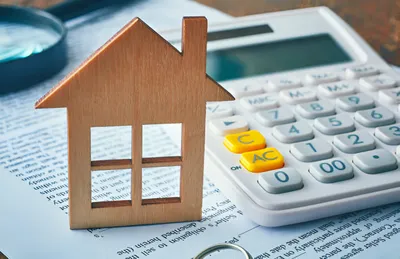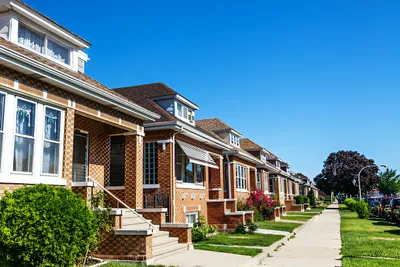If you watch any HGTV, you might think that buying a house doesn’t take all that long. You go see three houses over the course of a few days, then head off to a local restaurant for some apps and a cocktail to mull over your choices. By the time the real estate agent walks in to join you, you’ve come to a decision on which one to buy. Then, presto, you’re in the house of your dreams right after a short commercial break.
While nobody truly thinks it only takes a half hour to buy a house, most buyers probably couldn’t guess at how long the entire process actually takes when it isn’t being edited for TV. So, if you aren’t sure how long the process takes, don’t feel bad — it’s like trying to answer the age-old question of how long it takes to get to the center of a Tootsie Pop… it depends on a lot of factors.
But if you’re even thinking about buying a house, you might want to start the process now, because it might take longer than you think it does.
How Long Does It Take To Close on a House?
According to this Rocket Mortgage article, it typically takes 30-45 days to close on a house. Yet, in the very next sentence, they also state that the average time it takes is 50 days. That’s actually a great example of how difficult the timeframe is to pin down and accurately answer.
But most agents would probably agree that sounds about right. Thirty days is on the quick side, but possible. Forty-five is a safer bet, but a few days beyond wouldn’t be surprising. A closing that takes 60 days wouldn’t even be that out of the ordinary for an agent to see.
A cash deal where you don’t need to go through the mortgage process can close more quickly, perhaps in as little as a few days or a week. But even then there are other factors to consider that could impact how long it takes to close on a house. Besides, the majority of buyers need to obtain a mortgage.
So, does that mean you should plan on starting the process a couple of months ahead of when you want to move in? No. That’s just the amount of time it could take for the closing process. You should probably add at least another couple of months onto the entire process of buying a house!
9 Things That Could Add to How Long It Takes
It’s almost pointless to even try and put an estimated number of days each part of the process takes because it varies from one area of the country to another, and each buyer’s circumstance is different. But what you can bank on is that there might be some things that hold up the process.
So let’s take a look at things that could potentially affect how long it takes for you to buy a house, to help you decide when to start your home search:
- Finding a house you like. Obviously, personal taste comes into play here, and it’s hard to put a timeframe on how long it takes for a buyer to figure out what they like. For some, it might only take a day of looking at a handful of houses, and for others, it could take months of seeing dozens of homes.
Also, if there aren’t many homes on the market, it could take weeks and months for one to come on the market you like. Or perhaps there are lots of homes on the market, and it could take weeks or months until you’ve seen enough to make a decision. This is the one aspect that is more in your control than other factors. If you’re a quick decision-maker, budget less time. If you think it’ll take you a longer time, factor it in.
- Losing out on some houses before you finally get one. Ideally, you’ll successfully negotiate acceptable terms with a seller on the first house you want to make an offer on. But sometimes buyers let great houses pass them by because they take too long before putting in an offer. Sometimes they make offers that are too low and sellers won’t accept until they realize they need to make stronger offers. Or if there’s a lot of competition, you might be outbid by other buyers on a house or two before succeeding.
- An owner might need a longer closing date. If the owner of the house of your dreams needs time to find a place to live or move out, it might be well worth the extra days or weeks they need to get the house you want… especially if it gets you a better deal, or for the owner to accept your offer over another buyer’s offer.
- Home inspection issues. The inspection itself could take some time to schedule if local inspectors are slammed with appointments. But usually, you can get one scheduled pretty quickly, and even get the report back in a relatively short amount of time. But if there are issues found during the inspection, it could add time due to going back and forth with the owner negotiating over what needs to be fixed. And if repairs need to be made before closing, that can take time depending upon the availability of contractors.
- Mortgage underwriting. Even if you get every piece of documentation into your mortgage lender in a timely fashion, once it’s in the underwriter’s hands, they often take more time than they should to review the documents. And once they do, they might come back asking for more documentation.
- Appraisal. Ideally, the appraisal is ordered quickly to give the appraiser time to put it on their schedule and do all of the work it takes to finalize their opinion and report. But even if it’s done quickly, there’s always a chance the appraisal comes back lower than expected, and you’ll need to give the appraiser supporting evidence so he or she can reconsider their opinion and adjust their report, or try to negotiate with the seller to reduce the price.
- Title work. As long as you choose a title company that is reputable and known for getting their end of things done in a timely manner, they shouldn’t add to the time it takes to close. But if you choose one that isn’t so great, obviously that could affect things. But either way, if an issue is found when they do the title search, it might add some time to the process as the legal issues are resolved so you can make sure you’re buying a house with a clean title.
- Scheduling the closing. There are many people involved in a closing besides you and the seller. Coordinating a day and time isn’t always easy, and can impact the closing date.
- There was an issue at the final walk-through. Right before you go to closing, you should go to the house to make sure that it’s in good condition, and everything is there that should be there, and nothing the owner should have taken was left behind. If you find something that’s damaged or wrong, you may need to delay the closing until the seller addresses the problem.
Hopefully, your purchase won’t involve any of the above possible delays and added days to the process, but even if everything is smooth sailing, you’ll still probably want to start the buying process at least three months before you want to be in your new home. But the earlier you start the process, the better off you’ll be.
The best way to gauge how early you should start the process is to reach out to your preferred real estate agent, and let him or her know what you’re looking for. Once an agent knows what you’re looking for, they can give you a better sense of how much time it’ll take given the current market conditions, available houses for sale, and your personal circumstances.
The Takeaway:
It takes about 50 days on average to close on a home, but that doesn’t take into consideration how long it may take you to find the house you want to buy. There’s also a chance that you could experience delays in one (or more) parts of the buying process that are beyond your control. So you’re better off giving yourself more time than you think you need to buy a house.
If you’re thinking about buying a house in the near future, reach out to a local real estate agent and let him or her know when you’d like to move into a new home, what you’re looking for, and any information about your situation that may be relevant to them. Then they can give you a better sense of how much time it’ll take given the current market conditions, available houses for sale, and your personal circumstances.


